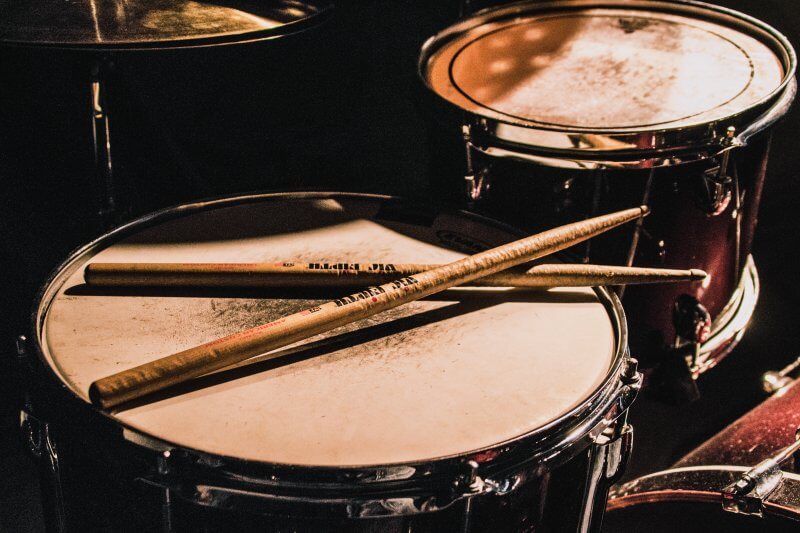 Making the decision to learn how to play a musical instrument is one of the best decisions you can make. Every musician has a preferred instrument, and if you are reading this, chances are that drums are the instrument you have chosen. Playing the drums is an exhilarating and exciting experience, but in order to get started on the right note, there are six drumming basics you should know.
Making the decision to learn how to play a musical instrument is one of the best decisions you can make. Every musician has a preferred instrument, and if you are reading this, chances are that drums are the instrument you have chosen. Playing the drums is an exhilarating and exciting experience, but in order to get started on the right note, there are six drumming basics you should know.
6 Drumming Basics
These helpful tips are at the base of every proficient drummer’s skill set, and if you dedicate time to perfecting them, you can easily be on the way to becoming a great drummer.
1. Practice with a metronome.
As a drummer, it is your job to be the rhythmic center of the music you play. If you ever play in a band setting, every other instrument follows the timing of the drums. Therefore, it is your goal to be as accurate as possible with the timing of your playing. While some drummers naturally have a better sense of rhythm than others, practicing with a metronome will aid any drummer in improving their rhythm.
2. Figure out what size drum sticks fit you best.
Drumsticks come in different sizes for the purpose of providing different sounds and fitting different drummer’s personal preferences. If you are not sure what size drum sticks are right for you, go to a music store and simply test out different sizes until you find the size that feels the most naturally comfortable to you. As a general guide for selecting drumsticks, there are four main sizes that you will find:
- 7A: These drumsticks are thin, and they are typically used for softer drumming techniques.
- 5A: These are generally the most popular and widely-used drumsticks, as their average thickness allows a larger array of sounds.
- 2B/5B: These drumsticks are thick, and are most commonly used for louder drumming.
3. Know how to tune your drums.
While tuning is essential to playing any kind of stringed instrument, drummers can sometimes get away with out-of-tune drums. While drums take significantly longer than many other instruments to go out of tune, it is still important to know how to tune them. Without being tuned, your drums will not sound as full and powerful as they should. It takes practice to get a feel for tuning drums. Consult a music instructor to learn how to do it because it is something that takes a good ear, which you cannot acquire through worded instructions.
4. Learn basic drum beats.
Without a beat to maintain structure, drums sound like noise rather than music. It is important for every drummer to know how to perform basic drum beats and eventually learn how to formulate their own. If you are not sure where to start in terms of learning drum beats, here are instructions for one of the most widely used beats in modern music:
-
-
Play the hi-hat on beats 1 through 4. Count it in your head by saying “1 and 2 and 3 and 4 and”.
-
Use the kick drum on beats 1 and 3, in addition to the hi-hats.
Hit the snare on beats 2 and 4 in addition to both the kick drum and the hi-hats.
Following these three steps at the same time, you have created a looped drum beat that can be used for practically any musical situation.
5. Play at a well-balanced volume.
While drummers have a reputation for loving to play too loud, the opposite trend is seen in new drummers. When you are starting out, you may not feel confident in your abilities. Consequentially, this affects many new drummers playing as they may not hit the drums as hard as they should in fear of others hearing their mistakes. It is also important to not play obnoxiously loud, so find a balance between the two. You should be able to be heard clearly, but your sound should not overpower the rest of the band. The drums are the base of any song, so it is important to be powerful and consistent while not constantly distracting the listener from the other instruments.
6. Take drum lessons.
There is certainly a multitude of methods you can use to learn how to play drums, but no method is as effective and efficient as taking lessons from a professional. Reading a book or watching a video does not come close to achieving the level of knowledge you gain from being taught one-on-one by someone who has years of experience doing what you are hoping to learn how to do. Also, if you do not have someone to oversee your progress as a musician, you could miss out on developing your potential. If your technique is not as proficient as it should be, there will be no one to point it out to you. Drum lessons are an investment, but if you are going to commit to learning to play drums, the investment is completely worth it.
If you learn these drumming basics, you will have the foundation you need to build up your drumming skills and become the musician you aspire to be. As with learning any instrument, time, commitment, and dedication are necessary to progress. If you don’t perform as well as you would like to when starting out, don’t be discouraged. Use it as a reason to work harder, and as long as you have a firm foundation for your playing, you will undoubtedly improve and become a respectable drummer. Good luck!
Photo by David Childers Photography
Suzy S.

